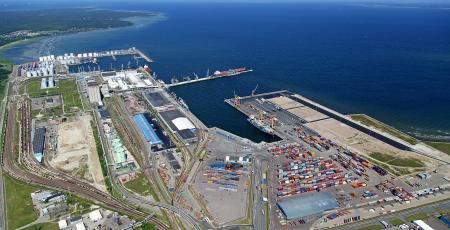The ferry service Klaipeda - Mukran (now Sassnitz) connected the ports of the USSR and the GDR through the Baltic Sea.
In the USSR, the exchange of goods with the countries of the Council for...
International projects
International projects
Over more than 80 years, some 400 projects in 16 countries have been built and reconstructed after the designs developed by Lengiprotrans: railway lines, hubs and stations, power lines, production facilities, railway terminals, bridges and viaducts.
The project geography is vast: Russia, the Baltic States, the Middle East, and CIS.
In 1970–1980, Lengiprotrans had its permanent representation office in the Republic of Cuba.
The page shows the objects of the selected type, the design of which was performed in the selected period
Muuga Port is a commercial sea port in Estonia on the shores of the Muuga Bay, which is part of the Gulf of Finland. It was built in 1986 to transport grain crops to the USSR; in the future, it...
Tselinograd (now Astana) is a railway station of the Kazakhstan Railways in the capital of Kazakhstan, the city of Astana.
In the 1980s, the Lengiprotrans Department of Plants (now part of the...
Kokchetav (now Kokshetau) is the administrative center of the Akmola region of Kazakhstan.
In the 1980s, according to the Lengiprotrans project, the City Vocational School for 480 students was...
Tallinn is a passenger railway station in the capital of Estonia. The directions Narva - Tallinn, Tallinn - Viljandi pass through it.
In the 1980s, Lengiprotrans developed a project to...
Riga-Precu II is a railway station on the Riga-Ergli line in Latvia. Here, work is carried out with freight trains and long-term storage wagons.
In Soviet times, the station was equipped to...
Pages












